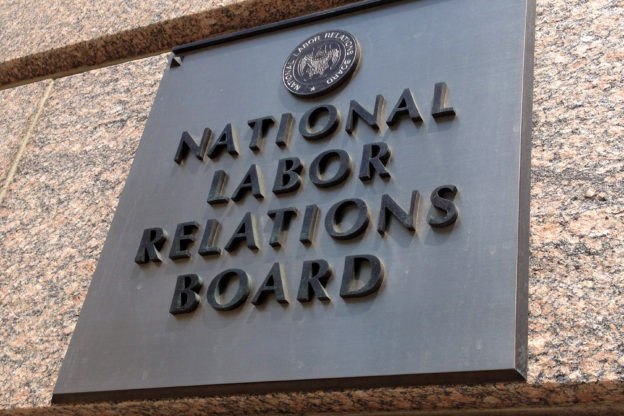
David Law
by David S. Law, Holland & Hart, LLP
Under General Counsel (GC) Jennifer Abruzzo’s leadership, the National Labor Relations Board (NLRB) is poised to dramatically expand the definition of “protected concerted activity” under Section 7 of the National Labor Relations Act (NLRA). The Board also intends to take a tougher stance against employer handbook policies. The sweeping changes are likely to have a significant impact on employers in 2022 and beyond.
Redefining ‘concerted activity’
Traditionally, an activity is “concerted” for Section 7 purposes if it is engaged in by (1) two or more employees, (2) one employee authorized to act on coworkers’ behalf, (3) one employee seeking to induce or prepare for group action, or (4) one employee bringing group concerns to management’s attention.
During the Obama administration, the NLRB expanded the “group concerns standard” in Wyndham Resort Development Corp. In that case, the Board held an employee always engages in protected activity when, in a group setting, she expresses concern about an issue affecting multiple coworkers.
In the 2019 decision Alstate Maintenance LLC, the NLRB reversed Wyndham, holding that merely raising group concerns in a group setting doesn’t always constitute concerted activity. For concerted activity to be found, there must be some evidence of prior or contemporaneous group discussion on the topic.
Now, the current Board is indicating it may reverse Alstate and return to—or perhaps even expand—the Wyndham standard. In March 2021, the Board issued Memorandum 21-03 stating that when a single employee speaks about certain social justice issues, the speech is “inherently concerted” (and protected) regardless of whether any of the traditional bases for concertedness are satisfied. So long as the speech is about a matter of “common concern in the workplace,” such as wage equality, race discrimination, or immigration issues, Section 7 protections apply. The Board reiterated this position in January 2022, in a brief filed in a pending Section 7 case. In that brief, the GC argued Alstate should be overruled and replaced with the “inherently concerted” standard. Although the Board has yet to issue a decision in this case, it is expected to side with the GC and overrule Alstate.
Should the NLRB adopt the new standard, a broad swath of previously unprotected speech will fall within Section 7’s ambit. The Board has provided some specific examples of speech that would be protected:
- A single employee displaying the lettering “BLM” (i.e., for “Black Lives Matter”) on a work apron or a face mask; or
- A single pizza-shop employee attending a demonstration alone and advocating for a higher minimum wage.
Heightened standard for handbook policies
The NLRB is also considering a change in the law governing employer policies. Before 2017, the Board applied an employee-friendly standard from Lutheran Heritage Village-Livonia: A policy limiting employee speech violated Section 7 if it could reasonably be construed as prohibiting protected concerted activity. Because almost any policy can be construed as prohibiting some form of protected speech, many policies were found to be unlawful under the standard.
In the 2017 Boeing Company decision, the NLRB overruled Lutheran Heritage, replacing it with a more employer-friendly balancing test.
Now, in Stericycle, Inc., the NLRB is considering overruling Boeing and returning to the Lutheran Heritage standard. Should the Board do that, it could cast an array of handbook policies into question. Provisions that might be unlawful under the Lutheran Heritage standard include:
- Policies prohibiting “loud, abusive, or foul language”;
- Rules banning “false, vicious, profane, or malicious statements about an employer or its employees”;
- Standards requiring employees to “work harmoniously” with one another; or
- Mandates prohibiting “negative energy or attitudes.”
Takeaways
You should avoid disciplining employees for speaking on social justice issues. Even if the speech is disruptive, it may still be protected.
That said, an employee’s right to speak isn’t unlimited. Even under the broad, employee-friendly rules currently being considered, employers are permitted to enforce reasonable policies to maintain order and professionalism in the workplace.
Policies should be narrowly drafted to cover only certain forms of blatantly harmful speech. You should always make clear that nothing in the policy should be interpreted as restricting protected speech. Employees should be encouraged to come to HR with questions about what sorts of speech are prohibited.

